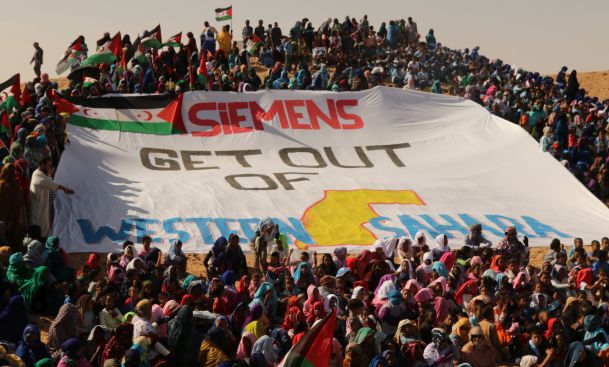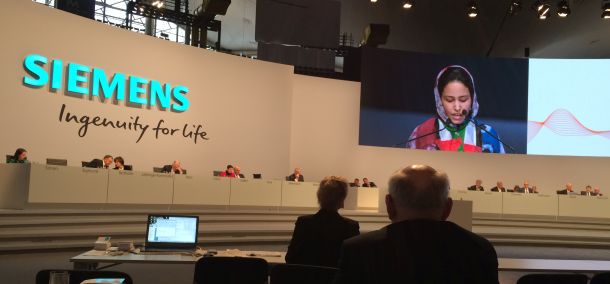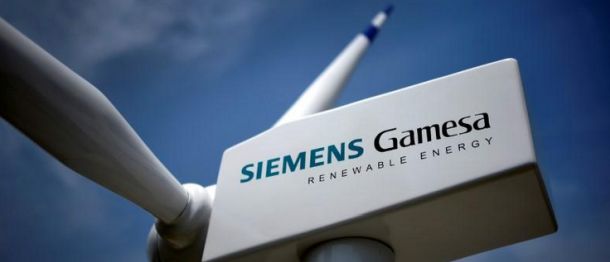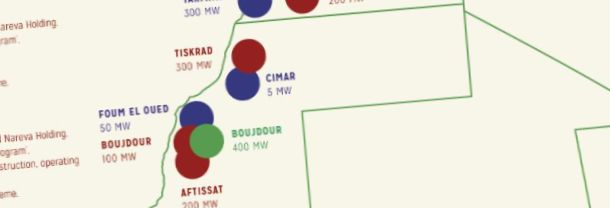Siemens inconsistently supporting occupations

While the German industrial mastodon has no problems in delivering turbines to the area of Western Sahara that is under Moroccan occupation, it goes out of its way to distance itself from similar deliveries to Crimea.
Published 10 July 2017
Siemens today issued a press release saying gas turbine sets it had delivered for a project in southern Russia, had been moved to Crimea "against our will". "This development constitutes a clear breach of Siemens' delivery contracts, which clearly forbid our customer from making deliveries to Crimea", the statement reads. "Over the last few months, our customer has confirmed to us numerous times in writing that a delivery to Crimea would not occur. As a consequence, Siemens will initiate criminal charges against the responsible individuals." The customer in this matter is the Russian state-owned engineering company Technopromexport.
At the same time, Siemens has no reservations whatsoever in supplying wind turbines to the parts of Western Sahara that have been under Moroccan military control since 1975, in defiance of international law. Siemens has supplied 22 turbines for the Foum el Oued wind park, which supplies 95% of the energy required for Morocco's highly controversial plunder of non-renewable minerals from Western Sahara.
The firm has also won a tender that includes the construction of two additional wind parks in the occupied territory, in cooperation with Italy's Enel Green Energy and Nareva, a Moroccan wind energy firm owned by the Palace. Those plants will have a combined capacity of 400 MW. Read more about Siemens' involvement in Morocco's wind energy projects in occupied Western Sahara in WSRW's report "Powering the Plunder", published in November 2016.
"Regardless of political disputes, we believe that a working infrastructure will help to improve the economic conditions, and as a consequence the situation of the people in the West Sahara", Siemens replied in May 2012 to WSRW's letter of inquiry.
After years of trying to get answers from Siemens with regard to legal concerns and human rights principles pertaining to its activity in Western Sahara, the firm finally wrote to WSRW in October 2016 that “Your questions that deal with the legal and political status of Western Sahara deal with matters of international public law. It is, therefore, the responsibility of the subject of international public law (such as international bodies, states and others) to deal with these matters. The views of NGOs are, of course, also of great value. Companies like ours, on the other hand, refrain as a matter of policy from taking positions or making judgements on such issues”.
"Siemens' scarce comments on its involvement in Western Sahara suggest that the firm cares rather little about the legal status of the territory in which it operates, or the rights of the people of such territory", says Erik Hagen from WSRW. "It would appear that the firm simply wants to avoid being seen as violating EU sanctions in Crimea, rather than having any principled stance grounded in international law."
The European Union imposed sanctions barring EU firms providing Crimea with energy technology, after Russia's 2014 annexation of the peninsula from Ukraine, a move seen by the EU as breaking international law.
In December 2016, the EU's supreme court issued a judgment stipulating that Western Sahara is a territory distinct and separate from Morocco, and that as such, no EU trade or association agreement with Morocco could be applied to Western Sahara, without the explicit consent of the people of the territory.
In February 2016, the European Parliament's Policy Department published a report on the need for a coherent EU policy with regard to the three occupations of Western Sahara, Palestine and Crimea. In all three cases, plunder is illegal, the report states.
News
Siemens again refuses to answer questions about Western Sahara at AGM
For the fourth consecutive year, the German engineering company dodges questions at its Annual Shareholders Meeting as to whether it has obtained the consent of the people of Western Sahara to operate on their land.
07 February 2020
Siemens fails to respond Western Sahara question at AGM
Why did you not seek permission from my people?, a Saharawi refugee asked at Siemens AGM. Company fails to answer questions why it operates on occupied land.
02 February 2018
Siemens: the Moroccan king's wind turbine supplier in Western Sahara
WSRW has again asked Siemens to clarify how they’ve obtained the consent of the people of Western Sahara to their involvement in literally all of Morocco’s wind power plans in the occupied territory.
07 December 2017
Moroccan wind energy in occupied Western Sahara passing 40%
Even more wind farms are being planned in occupied Western Sahara, and all of them are in the portfolio of the Moroccan monarch's company NAREVA.
31 October 2017



